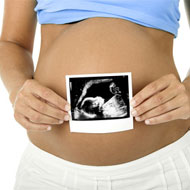- General Articles
- General Pregnancy Questions
- Baby Growth
- Pregnancy Diet
- Miscarriage
- During Pregnancy
- Twin Pregnancy
- Toddler Meals
- Home Remedies During Pregnancy
- Breastfeeding
- Pregnancy Week By Week
- Pregnancy Tests
- Ectopic Pregnancy
- Pregnancy Signs and Symptoms
- Pregnancy Stages
- Potty Training
- Fetal Development
- Preschooler
- Postpartum Depression
- Toddler Illness
- Baby Care
- After Pregnancy
- Molar Pregnancy
- During Delivery
- Beauty and Style
- Pregnancy Clothing
- Preconception
- Fertility
Breastfeeding and Allergies
Breastfeeding is a wonderful process which allows the mother and child to bond on a physical and emotional level. However in some cases breastfeeding and allergies in the mother or the child may go hand in hand. An allergic reaction is known to be experienced when the body tends to react to what it considers an attack from a foreign external body such as a particular particle of food or mold. Hence as a defence mechanism, the body will produce unusually large amounts of antibodies which tend to have an immunological response which is required to counter the supposed intrusion.
This reaction may be manifested in the form of any of the many symptoms such as watery eyes, congestion, runny nose and can also be life threatening in some cases causing anaphylaxis. Although most breastfeeding advice state that breast milk contains certain natural antibodies which are helpful in preventing any allergic reactions in children, however inspite of these antibodies there is a possibility of allergic reactions to occur in infants which may be in the form of diarrhea, an upset stomach, runny nose and eyes as well as hives or rashes. In some cases the allergic reaction in the infant may be mild and can be observed simply as the child having difficulty in sleeping or restlessness.
The breastfeeding diet of pregnant women who are known to have a history of eczema or asthma may be different for the regular breastfeeding diet as they need to be more cautious about the food that they eat. Many a times pregnant women tend to believe that their child may be allergic to breast milk itself but this is never the case. It is possible that the child may be allergic to something that may be present in the mother’s milk on account of the food consumed by the mother as studies have shown that mothers may pass on peanut protein to their child which is one of the common allergens even in adults. Breastfeeding diet should not include such food and other common allergens such as corn and eggs as they tend to put the baby’s health at risk and the child may even develop potentially fatal allergies as it grows.
One of the most commonly observed allergies in toddlers and babies is milk protein allergy which is commonly observed in older children and not in nursing infants. Milk protein allergy mostly occurs because the child stomach lining is still not compatible with cow’s milk protein and results in an allergic reaction.
Read more articles from the Breastfeeding Category.



 7 Must-Haves Before Your Baby Arrives
7 Must-Haves Before Your Baby Arrives Bonding Games for Babies
Bonding Games for Babies DIY Baby Bath Towel Apron
DIY Baby Bath Towel Apron Common Late Pregnancy Fears
Common Late Pregnancy Fears